![]() A big theme in my writing is living with trust because I don’t think it is good for our souls to go through the world with our guard up all the time. I’m not against smoke detectors and seat belts, simple ways we can make ourselves and our loved ones safer. I’m not against security settings on Facebook, either, or other precautions to protect our privacy in the age of the Internet. But I often wonder where to draw the line between precaution and paranoia, especially as a parent. Figuring out whom to friend on Facebook is the latest issue to challenge me to think about what living with trust really means in the cauldron of daily life.
A big theme in my writing is living with trust because I don’t think it is good for our souls to go through the world with our guard up all the time. I’m not against smoke detectors and seat belts, simple ways we can make ourselves and our loved ones safer. I’m not against security settings on Facebook, either, or other precautions to protect our privacy in the age of the Internet. But I often wonder where to draw the line between precaution and paranoia, especially as a parent. Figuring out whom to friend on Facebook is the latest issue to challenge me to think about what living with trust really means in the cauldron of daily life.
When I first joined Facebook, I friended anyone who asked or whom I recognized on someone else’s friend list. It was fun to reconnect with people I had barely spoken to in high school and those I knew in the Peace Corps. In addition to being a social person enamored with new technology, I had a secret, selfish agenda. Having published a book that went out of print after a few years, I was determined to get better at publicity and networking. Some of my high school friends never heard of that first book when it came out, and I was determined not to make that mistake again. The more friends I had on Facebook, the easier it would be to tell people about my second book when it came out. It was also a little ego boost every time my list of Facebook friends passed another milestone, which I’m sure is quite unQuakerly.
It was not long after the Wisdom book came out when a male friend sent me a message pointing out that there was graphic pornography posted in my “Boxes,” a part of my Facebook account I had never even noticed. Embarrassed, I erased it immediately and then wondered if I had just erased the evidence of who had posted it. There had been one previous inappropriate post that I had erased quickly. My “friends” list suddenly looked like a long line-up of suspects. As I started getting more friend requests from people I didn’t know, I wondered if accepting everyone who asked was really a good idea. A few people had suggested I set up a fan page, anyway. That suddenly seemed smart, especially as my daughter approached her thirteenth birthday, the day when I had promised she could join the Facebook tribe, as long as I was her first friend and she followed certain guidelines. Presumably, that would put her one degree of separation from the porn-poster.
My daughter has been a responsible, though slightly obsessed Facebook user. She only friends people she actually knows and frequently ignores friend requests from boys in her class on the grounds that they are not really her friends. (No comment from me.) Still, after a terrific class trip to Costa Rica, many of her classmates have started posting pictures of each other, and I don’t think there is any way to put that genie back in the bottle. I remember the book The Science of Fear arguing that parental fears of Internet stalkers are fueled out of all proportion by a sex and fear obsessed media, so I’m trying to take the smoke-detector approach to this, installing basic precautions, but not losing any sleep over worst case scenarios.
On my own account, I decided on a new strategy that I’m still testing. When people I don’t recognize send a friend request, I send a polite message saying that I’m sorry if we’ve met and I’ve forgotten, but I’m only friending people whom I actually know. If they like my work, they can join my fan page, which several have done. Some have explained that they are Quakers, which leaves me wondering if it’s discrimination to “friend” any “Friend,” but not anyone else. Does it matter if they are friends with 32 friends of mine? Or 3? I’m not clear on whether I need a consistent policy or a case-by-case strategy. Most people have been friendly and understanding, but a few have been a little weird about it. One guy a few months ago kind of begged to be my friend, which is a little bit like having someone beg to kiss you—a real turn off, in my experience. You already have over 1,000 friends, I thought. Why are you so desperate to be friends with me?
Today, after sending my standard note to someone whose name I didn’t recognize, I got a nice note back from a Quaker from another yearly meeting (which means regional body, in plain English), pointing out that in his area the Internet has been a great way to build community, especially with young adult Quakers, who often feel separate from the older crowd. I agree with this point, and it leaves me wondering what I might be missing by limiting my connections, not in terms of book sales, but in terms of real community.
The thing is that living with trust could mean different things in this situation. It could mean friending anyone who asks, which arguably might be what Jesus would do if he was on Facebook. On the other hand, living with trust might mean doing what feels right to me and trusting that other people can deal with it, or not, as they choose. The most serene people I know are the ones who don’t really care what other people think (which is quite different from not caring about other people). As a woman trained as a people pleaser, I’m trying to cultivate this quality, and it may be that not friending people is giving me good practice, though I don’t feel entirely clear about it. Is my discomfort at rejecting friend requests a sign that this policy is not “rightly ordered,” to use the Quaker jargon, or a sign that I need to let go of the desire to have everyone in the world be my friend?
I’m curious how others are defining their boundaries on the Internet and whether or not being a parent affects where those lines get drawn.

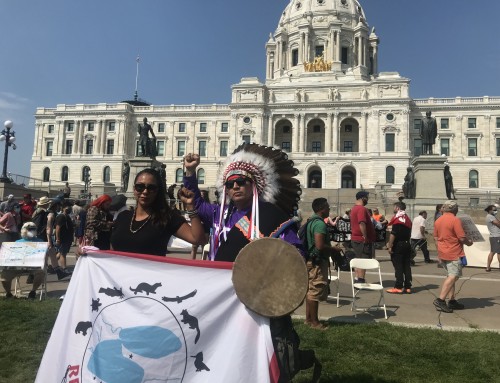
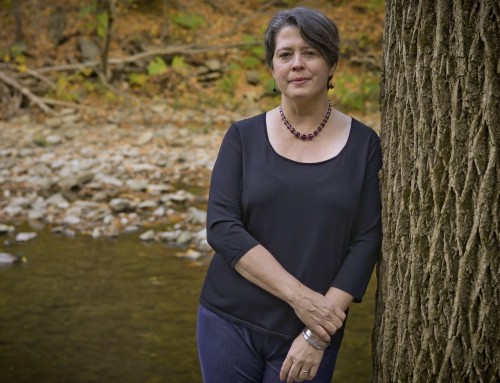
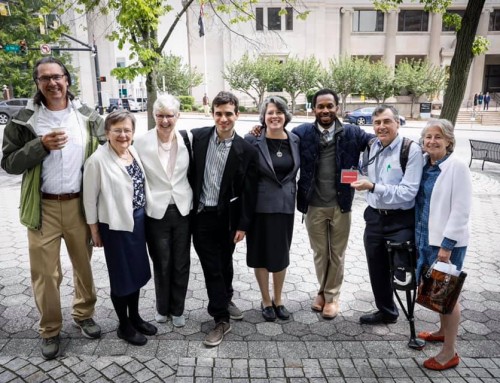
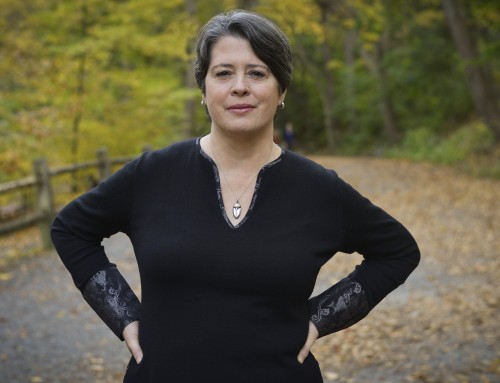

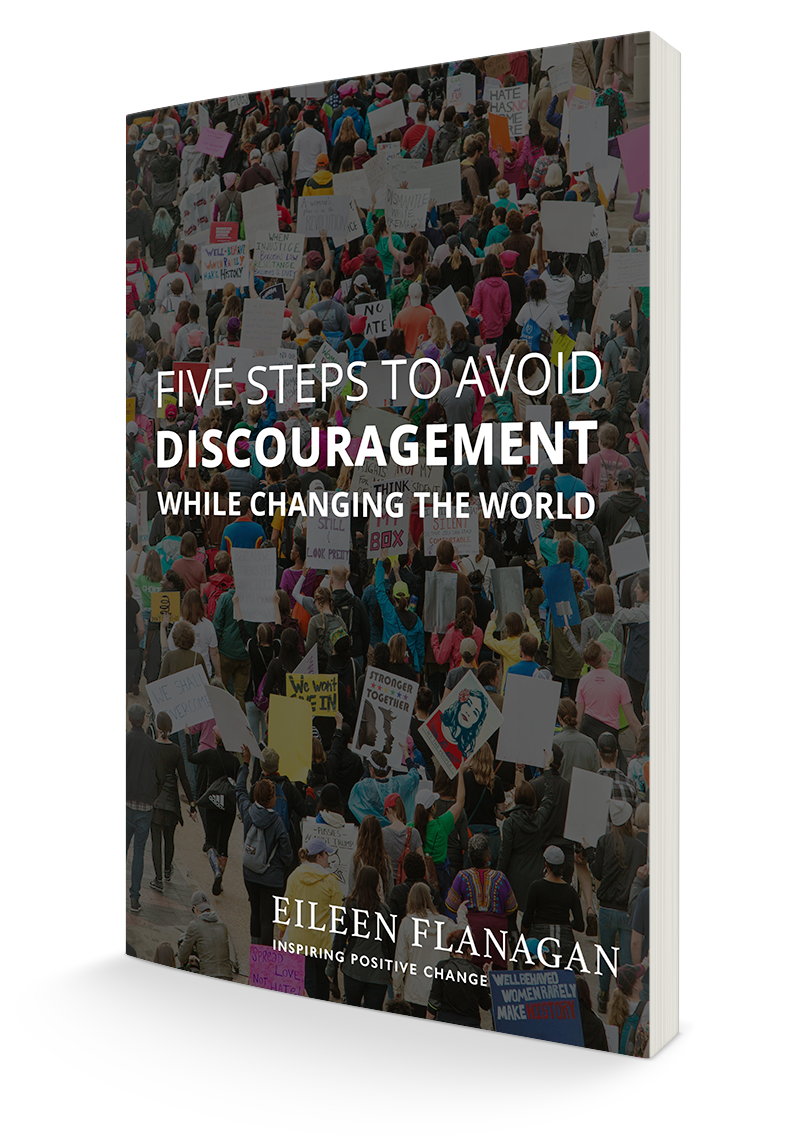
This post sent me looking for my "boxes", but I can’t find them. Hopefully there’s nothing bad in there…
I friend only people I know (or knew) and then, not even all of them. I’ve had some requests from high school classmates whom I was never friends with in the first place — I barely remember them at all — so I don’t know why they are asking to be my friend. I think perhaps some people send a friend request to everyone that shares a certain profile with them (Anytown H.S. class of 19__, or whatever.) If that’s the case, I don’t feel bad ignoring the request, because I figure they didn’t plan on everyone accepting them anyway. (I got a request just today from someone I don’t think I know, but we have some Quaker and homeschooling friends in common, so I’m wracking my brain! I don’t know if she requested me because of the mutual friends or because we’ve actually met.) I also keep my settings pretty tight — allowing only "friends" to see things I post, never "friends of friends" or "anyone".
All that said, I’m not a published author, with strangers and mere acquaintances asking to be my FB friend. I can see how your situation is much more complicated. I think it sounds like you are handling it well. There is no easy answer.
Side note: The oddest FB "friendship" I have is with the wife of a high school classmate of mine (he and I actually dated briefly.) I was friends with her husband, and she’s a pretty good friend of my sister who lives in the same town, yet she and I have only met in person once or twice and we did not know each other prior to FB. We know a lot of everyday details about each other’s lives from FB, but we don’t know each other well on a deeper, personal level, because FB is not conducive to that. When I ran into her at a community event in my sister’s town last summer, it was kind of weird — as if we didn’t know if we were really friends or not. We joked about it a little, and it made me wonder what kind of "community" FB is. Certainly it is some kind of community — I would feel comfortable asking this woman to check on my sister in person if I suspected an emergency, for example — but it’s not really very deep. Maybe it’s like a congregation of next-door neighbors: people you see every day and care about on some level, but whose homes you’ve never entered past the foyer, if at all, and with whom you seldom have an extended conversation.
Stephanie
Most of my Facebook activity is mirrors of other public postings I have (my twitter feed, tumblr feed). I don’t pretend there’s any privacy and I self-censor myself the kind of comments I might make if it were truly a friends-only list. I rarely initiate a friends request but I’ll often accept one, especially if it’s a Quaker. For all intents and purposes, my personal profile is more of a fan page for people who know me from my online work. I have my wall fairly wide open.
But it does raise a point. I know someone who cyber-stalked me on peace listservs back in the 90s and had to be thrown out of a major Quaker event in 2001 for stalking a campus employee. He’s suddenly on Facebook. He tried friending me (I declined) but in the last four weeks he’s seemed to have friended every Quaker he can find. We now have something like 52 mutual friends. I’m pretty sure you’re one of them (checking…yes you are). I can’t think this is good. What’s most bizarre is that there are 52 people who have friended this guy without knowing anything about him.
Then there’s the fellow who set up a second alias account on QuakerQuaker and started posting sicko stuff about his unsafe sexual practices (and I’m a laid back guy with a pretty liberal notion of "sicko"). I was able to match his anonymous account to one where he used his name and figure his real identity. He’s well respected enough to be leading two Quaker Quest sessions at his meeting; he sits on his local school board (yeach).
I’m not sure what lessons to draw from these. I am worried that my indiscriminate friending might be helping to facilitate stalker behavior. Most stranger friend requests are harmless, made out of curiosity but are there a tiny few that have more sinister motives? Are there people allowing access to their accounts because they see I’m a mutual friend?
It’s good to have your considered words on this and thanks to the other commenters for their comments as well.
On Facebook, I don’t tend to accept friend requests from people I haven’t had some contact with outside FB. Some of those folks I haven’t met face to face but if I have followed their blog or had some good conversations elsewhere I am willing to believe that they are real human beings who are not just trying to steal my data and that of my friends.
The main people I am trying to exclude are people who are not using personal accounts on FB but trying to gather information from the unwary to spread spam and malware and steal data. I notice that these folks tend to join small groups a lot – I assume they are hoping to gain control if the groups are left without admin and thus get access to message the members of the group.
Thanks for the thoughtful comments everyone. I think you’re right, Stephanie that much of the connection is pretty shallow, though I have had a few connections that started or resumed on the Internet and then turned into something more in wonderful surprising ways. I want to be open to that.
Martin’s story is exactly what I wonder when I see someone with 52 friends in common and they are all "public Friends," people who might be inclined to friend anyone, thus giving someone the impression of being part of my circle when they are really not. And then there is the real possibility that people I know are just as creepy as people I don’t know.
By the way, Boxes show up under your profile, ext to Events, etc. I didn’t add them, and I can’t figure out how to get rid of them.
I think some prudence is warranted. I get lots of friend requests from people I don’t know. Very few of them exercise the option to put a message in the request. I am a public person running a widely used Web site, and being in the leadership of a nonprofit and a ministry. If there’s evidence that the person is connected with one of these, I will usually friend them. But how am I supposed to know if they don’t send me a message explaining? Some people will explain that they’ve seen my comments on status messages of their friends, and like what I have to say. I accept those requests.
I’m very poor at remembering names, so probably some people friend me who have actually been friends to some degree at some point in my life but I don’t recognize their name. And I don’t accept friend requests without seeing some reason to do so.
I do think there are a number of people who like to see how many FB friends they can get. That’s not my approach. Some people have a lot of friends in common with me, but I suspect this is their reasoning. I don’t accept friend requests from everyone with a lot of FB friends in common with me.
Hi Eileen,
One thing you could do is set up groups with a variety of privacy settings. That way when someone friends you (one of the questionable friends) you can immediately put them into the group you created. I have 2 groups set up; one is for general work friends and the other I call limited profile. The limited profile is mostly for past students that friend me….I don’t want to say no, but I "need" to maintain a boundary and keep my privacy. The group makes this possible.
good luck
Synchronicity…
Just today, I made a choice to not check FB for 2 weeks to notice how it impacts my time. I find that it is eating away at my time and the time that seems to be suffering is my daily Centering Prayer practice. There is a lot to be considered with FB, in my humble opinion.
I am a nurse practitioner in private practice, so what comes up for me is, "Do I become friends with patients?" So far, I have *not* done that… it seems to be a boundary issue.
I keep my security *very* high because I have a private practice in a suburban community and knowing my personal life [with all of it’s imperfections… "The Human Condition"] removes the "blank slate" that makes me effective in my job. I have friends who are psychologists and they do the same thing, yet I will find that they don’t have the security they thought they set up and I will e-mail them. For this reason, I keep my FB site so that it can be read by any stranger or patient and keep it "benign" [a term we medical folks use frequently to mean innocuous].
I have recently "friended" quite a few Quakers from my Meetinghouse and I *love* it… I find that I am able to keep up with the details in their life and ask about it on Sunday after Meeting for Worship. It has made me feel *more* connected because I am soooooo busy and have trouble remembering that someone’s mom is in the hospital, someone’s daughter just graduated, et.al.
I *don’t* accept f/Friends who I do not know personally. I also don’t deny the request, I simply *ignore* them and remove them from my friend requests. So far, noone has been offended by me ignoring them… that *I* know of 🙂 I also have removed "friends" that I friended early on when my "friend standards" had not yet evolved. From what I can tell, they haven’t noticed.
*Abbe*… I would love to know how to set up those kind of groups 🙂 I’m pretty sure my kids, who are 21 and 24 did this to me… he…he…he 🙂
I look forward to more discussion on this topic. Gotta go… need to check out my "box" [wink]
My wife and I decided to try facepook because our daughter-in-law was posting videos, photos and news about our only grandbaby. It is easier for her to contact multiple interested parties with these items and we are definitely among the interested parties. Then, we found that FB was a good way to stay in contact with my large extended family. That works for us also. Then we expanded by adding F(f)riends in our faith community. That was a good way to keep up with the group, but it also touched a nerve among those F(f)riends who think that FB exposes one to unwarranted invasions of privacy — others who think it is a monumental time-waster and still others who think it encourages some to make private and trivial things matters of public record. Indeed, some of our younger relatives have let us in on secrets we would rather have had them keep secret. But some of our friends have given us winsome and engaging accounts of their "adventures on light-rail" and other stories we would not have otherwise discussed. My mother told me about having to walk a couple of miles into town to return a phone call using the one phone at the town’s general store. And that phone was welcomed as promoting rapid exchange of social interaction at a distance. Now, I can have similar exchanges across entire continents in moments. I am not sure that the delays that have been eliminated by today’s technology have harmed the basic nature of, or need for, those interactions.
be aware that your email provider may also send FB Friends invitations to your mailing list. This happened to me. I joined FB after having a Yahoo email account for many years, and when i did, all of the people in my yahoo account that also had facebook accounts got invitations to "friend" me. I did not know this would happen. and only found out after the fact.
mj
It’s a case-by-case basis for me. If it’s from someone I don’t know, I always go to their page to see what kinds of things they’re fans of and who they’re friends with. I look to see if we have mutual friends as that might give me "some" indication of whether they’re an okay person. If I do know them, I still use some discernment. I have found that some people post a lot of frivolous content that I don’t want cluttering up my wall or that I simply find uninteresting, and in some cases, juvenile. For those that have sought me out that I really want no contact with, I block them which means they can’t find me on Facebook, send me any invites, etc. I don’t have any guilt about my methods as I’m a strong believer in boundaries whether in the real world or the virtual world.
Thanks all for your thoughts. I’m going to need to spend some more time checking out the different setting possibilities. I didn’t even know I could have different groups.
All of these wild digital frontiers are fields of learning in the spiritual arena, and they aren’t easy to navigate. Yet, as you noted, when you are self-promoting something, and/or want to learn how such technology fits into a spiritual path, there lies a certain need to use it and spiritual inclination to understand its fuller impact. I find that mine webfronts, in general, can be shaky territory, though FB in particular has posted specific challenges, case in point: http://www.intentionalinsights.com/2010/01/26/karma-collective-conscious-and-facebook/ Ultimately, it’s a place that you have to set your own boundaries, as in any space in your experience of self. As your approach is thoughtful and compassionate, the technology will serve you well.
Indeed, good things!